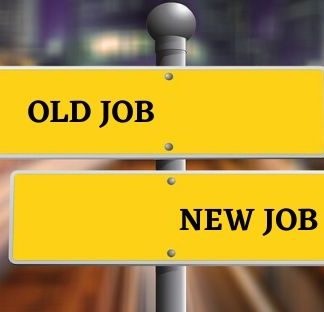Exclusive
Artificial intelligence: One in five companies already using AI – but employees more likely to fear it than their bosses
Workers and employers are divided on the role of AI at work – though adoption of the technology is already underway, according to a study by recruitment firm Hays.
Sarah Taaffe-Maguire
Business reporter @taaffems
Friday 19 May 2023 03:36, UK
Listen to this article
0:00 / 2:52
1X
BeyondWords
Audio created using AI assistance
PRODUCTION – 25 January 2023, Hesse, Darmstadt: Doctoral student and AI expert Sven Schulze is at the Darmstadt “Leap in Time Lab” using examples and data to explain the error-proneness of ChatGPT. The new software can write texts in seconds that are barely distinguishable from those of a human. Microsoft has already invested billions in the software and wants to release it to customers. The Darmstadt-based “Leap in Time Lab” has examined the software on behalf of companies and warns of risks. (
Why you can trust Sky News
Employees are more fearful and distrustful of artificial intelligence in the workplace than their employers – as businesses see cost savings as the main benefit of the technology.
A UK-wide survey of attitudes and preparedness for AI, by recruitment giant Hays, found close to a third of employees say they don’t have the right skills to make best use of the technology – but firms have already begun adopting it.
Some 56% of employers think AI should be embraced in the workplace, while just 8% said it should be feared.
Read more: AI to hit workplace ‘like a freight train’
BT has announced plans to significantly reduce its workforce by the end of the decade, with artificial intelligence due to replace thousands of roles. 4:45
Play Video – AI to hit like a ‘freight train’
AI to hit like a ‘freight train’
But among employees, just 49% believe artificial intelligence should be adopted – with 13% concerned about its impact.
Currently, 21% of organisations say they are already using AI tools like ChatGPT – and 27% are investing in training for staff to upskill in AI tools and technologies.
The main benefits of AI – identified by employers – were cost savings, process efficiencies and improved productivity.
MORE ON ARTIFICIAL INTELLIGENCE
An employee with headphones sits in front of a computer screen in the office
Could AI really take your job?
Greg Jackson, CEO of Octopus Energy, gives his thoughts on the rise in energy bills.
Artificial intelligence to hit workplace ‘like a freight train’, energy boss warns
OpenAI CEO Sam Altman testifies before a Senate Judiciary Privacy, Technology & the Law Subcommittee hearing titled 'Oversight of A.I.: Rules for Artificial Intelligence' on Capitol Hill in Washington, U.S., May 16, 2023. REUTERS/Elizabeth Frantz
Boss of AI firm’s ‘worst fears’ are more worrying than creepy Senate party trick
Related Topics:
Artificial Intelligence
At the same time, 55% of workers say their employer isn’t helping them prepare for the use of AI at work.
Click to subscribe to the Sky News Daily wherever you get your podcasts
The survey indicates that more companies will adopt AI – and just 18% say they intend to ban it, with 3% already prohibiting its use.
The majority – 66% – say they will allow the technology in their workplace but will monitor how it is used.
The greatest take up of AI, according to the survey, was in marketing.
Over a third (37%) of marketing professionals say they have used an AI tool in their current role. They were followed by 30% of professionals working in tech, 23% of professionals working in architecture and 17% of those working in sales.
Chat GPT explained2:16
Play Video – Will this chatbot replace humans?
Will this chatbot replace humans?
For businesses not using AI, the top reason listed was a lack of awareness or understanding of the benefits.
The survey results follow the announcement by BT that 55,000 jobs are to be cut before 2030 with AI replacing 10,000 roles.
BT has revealed plans to significantly reduce the number of people working for the telecoms group as part of efforts to cut costs and bolster profitability, with AI due to replace thousands of roles. The company said it hoped the roles would be lost through natural attrition rather than redundancy.
The telecoms company added it would use AI to deliver better customer service and capture other business opportunities.
Unions have also expressed concern for workers’ rights with the expansion of AI into the workplace and have called for tighter regulation.
Related Topics
Artificial Intelligence






























